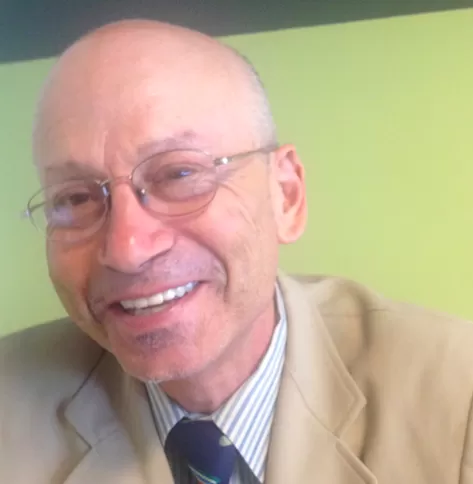Irvin Dawid discovered Planetizen when a classmate in an urban planning lab at San Jose State University shared it with him in 2003. When he left San Jose State that year, he took with him an interest in Planetizen, if not the master's degree in urban & regional planning.
As a long-time environmental activist, he formed the Sustainable Land Use committee for his local Sierra Club chapter and served six years on the Bay Area Air Quality Management District’s Advisory Council from 2002-2008. He maintains his interest in air quality by representing Sierra Club California on the Clean Air Dialogue, a working group of the Calif. Environmental Dialog representing business, regulatory and public health/environmental interests.
Major interests include transportation funding, e.g., gas taxes, vehicle miles traveled (VMT) fees, road tolls and energy subsidies that lead to unlevel playing fields for more sustainable choices.
He hails from Queens (Bayside) and Long Island (Great Neck); received an AAS in Fisheries & Wildlife Technology from SUNY Cobleskill and a B.S. from what is now Excelsior College.
After residing for three years on California’s North Coast, he’s lived on the San Francisco Peninsula since 1983, including 24 years in Palo Alto. Home is now near downtown Burlingame, a short bike-ride to the Caltrain station.
He’s been car-free since driving his 1972 Dodge Tradesman maxi-van, his means to exit Long Island in 1979, to the junkyard in 1988.
Major forms of transportation: A 1991 'citybike' and monthly Caltrain pass, zone 2-2. "It's no LIRR, but it may be the most bike friendly train in America."
Irvin can be reached at [email protected]
Feds to CA HSR Authority: Let The Track-Laying Begin!
The High Speed Rail Authority received a key approval from the Federal Railroad Administration to begin construction in California's Central Valley, specifically the 60-mile Merced to Fresno stretch. The remaining hurdles are several lawsuits.
How Much Will a 'Fill-up' Cost for an Electric Car?
With only 50,000 electric cars on the road now, many charging stations are free - but what happens when the number multiplies? Electric car charging companies are counting on the number increasing and are determining "how to charge for the charge."
Solutions to Fixing the Gas Tax Crisis
The Wall Street Journal published a 10-page energy section with the declining gas tax problem on page 1. Five solutions are offered: taxing the miles, taxing the roads, indexing the gas tax, taxing the oil, and taxing the cars. Each has challenges.
Freight Rail Companies Put the Kibosh on Montreal Commuter Rail Electrification
Two of North America's largest railroads have prevented Montreal from electrifying the city's four commuter rail lines on tracks owned by freight rail. They claim that electrification would pose insurmountable structural problems for freight rail.
New Car Share Service Demands Parking Privileges
With the possible entry of a fourth car sharing service into San Francisco, Daimler's Car2Go, the MTA must consider exemptions from the city's strict parking policies, specifically on-street parking in residential parking districts and metered zones.

























